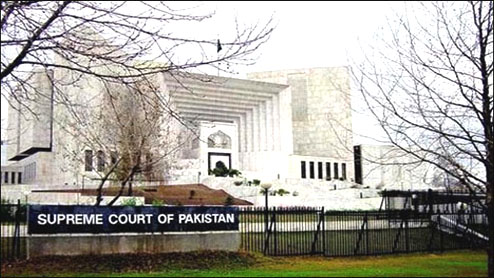 ISLAMABAD: The Supreme Court on Tuesday questioned why the government had failed to optimally utilise 27 Independent Power Producers (IPPs) available in the country with a capacity of generating 6,876 megawatts of electricity and instead signed contracts of rental power projects (RPPs) despite having knowledge of potential gas shortage in the country.
ISLAMABAD: The Supreme Court on Tuesday questioned why the government had failed to optimally utilise 27 Independent Power Producers (IPPs) available in the country with a capacity of generating 6,876 megawatts of electricity and instead signed contracts of rental power projects (RPPs) despite having knowledge of potential gas shortage in the country.
A two-member bench of Chief Justice Iftikhar Muhammad Chaudhry and Justice Khilji Arif Hussain was hearing a suo motu case with two identical petitions filed by Federal Minister for Housing and Works Faisal Saleh Hayat and PML-N MNA Khawaja Asif alleging huge corruption in the award of RPP contracts. Resuming his arguments, Khawaja Tariq Rahim, the counsel for Pakistan Electric Power Company Limited (PEPCO), contended before the court that RPP accords were signed due to the growing demand of electricity in the country, adding that water shortage and rising electricity demand was a major reason for load shedding. He presented a report before the court relating to RPPs’ approval, saying all project contracts were granted according to rules and regulations.
The chief justice noted that the report was based on assumptions, adding that it was said in the report that load shedding would be over when 14 RPPs and IPPs would be generating power jointly, whereas, power shortage still existed. He said the report on RPPs was not sent to the cabinet for approval. He said electricity prices had skyrocketed on the pretext of fuel adjustment.He said except the Gulf Power Plant, no RPP was generating electricity or paying taxes, adding that the Asian Development Bank (ADB) report on RPPs was a charge sheet against the government. The lawyer rejected the petitioners’ point of view that RPPs were not required to address load shedding, saying it was wrong impression that RPPs would not fulfil the power shortfall. – PT












